Whole-top design, looks about 1890-1910.
Most of us, so familiar with the work of the quilters in Gees Bend, Alabama,
might call it a House Tops design. Another name is Pigpen.
Bettie Bendolph Seltzer, 1997, Boykin, Alabama (Gees Bend)
Skinner Auction
Pecolia Warner's Pigpen block quilt went to Maude Wahlman.
It's now in the American Museum of Folk Art.
Warner was probably referring more to a block quilt than a whole top and when she talked about the paper, she might have meant she had never seen a published pattern. BlockBase+ begs to differ.
But published designs for a whole-top pattern are pretty obscure. Effie Chalmers Pforr published a reference as Going Around the Mountain in her 2008 book Award Winning Quilts from Progressive Farmer.
And the shading forms concentric squares, not the Sunshine & Shadow
#3978 Philadelphia Pavement from Carlie Sexton's
Illinois pattern company about 1920.
#3979
The Arnetts in Gee's Bend: The Architecture of the Quilt note
the popularity of the whole-top Housetop pattern with the women working
there in the early 21st century
So what is a Housetops or Pigpen design? It's a log cabin block grown large. But not the common log cabin. Construction: 2 short logs top & bottom above, 2 long logs on the sides.
It differs from the regular log cabin
where 4 logs of the same size "chase" each other
around the square.
Housetops of striped fabric by Nettie Jane Kennedy,
Boykin, Alabama, about 1955
Museum of Fine Arts, Houston
of half dark & half light.
Whole top Sunshine & Shadow, about 1910
When the logs get this big they are often pieced of smaller strips
but the shading holds the illusion together.
Susana Allen Hunter, Wilcox County, Alabama
About 1955
Henry Ford Museum
Or not.
Fading has probably affected Susana's quilt. She made
at least three of these, called by her or her family Housetops.
Unknown maker from Kansas City, about 1925
Newark Museum
(If there is no caption it's something I found in an online auction)
You don't see the design any earlier than about 1890,
and it's often quite utilitarian, made for warmth not for show.
Until you view it as a piece of art on a wall.
Now that we have the pattern defined we can enjoy
some variations.
Catherine Somerville, Montgomery Museum of Fine Arts
Cargo Collection, Birmingham Museum of Art
Rectangles may fit your bed better.
Annie Mae Young, High Museum of Art
Bark Cloth Upholstery Fabric
Teddy Pruett's collection

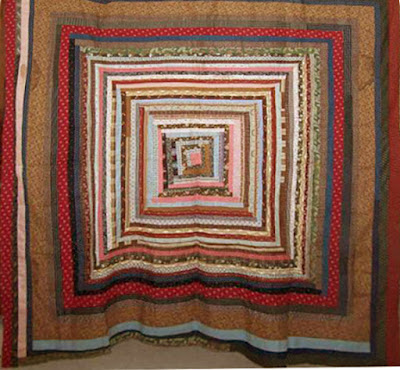




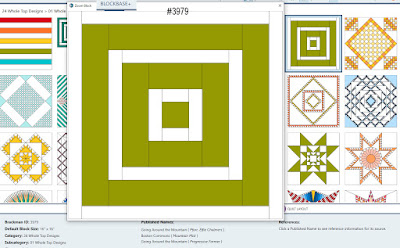



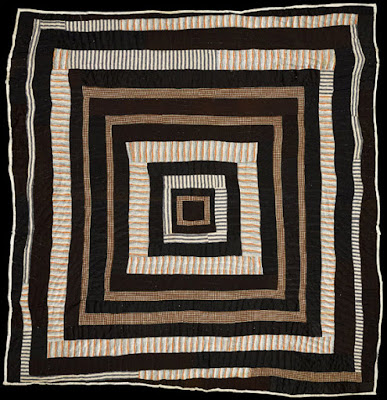
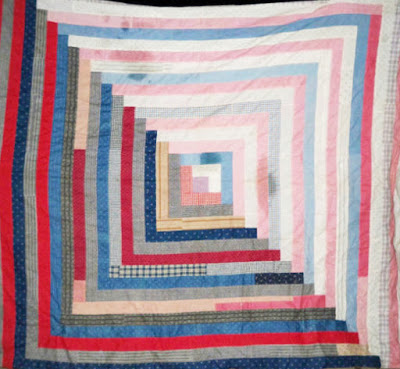

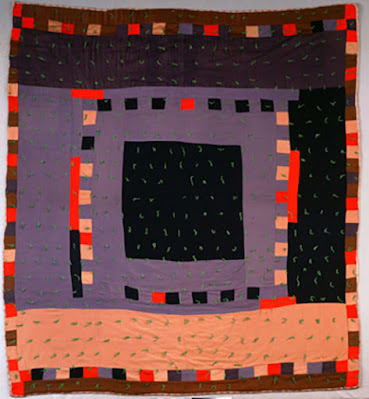




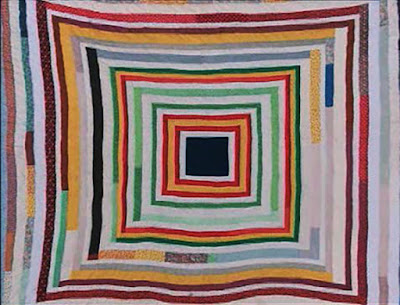

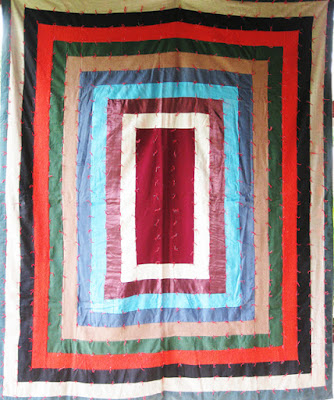



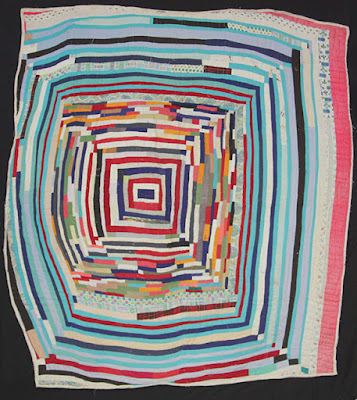
Working on allowing comments and discouraging voodoo doctor spam.
ReplyDeleteA very interesting post. It's always great to see so many varieties and notes about the same/similar designs. Thanks for the inspiration this morning.
ReplyDeleteMy ultimate goal is to make a housetop/pigpen quilt. I have the fabric...just need the time.
ReplyDeleteKaffe Fasset has a couple in his books but he calls them a variation of the trip around the world pattern.
I learn so much from your blog posts Barbara! Thank you. I did not know the name Housetops or Pigpen. I have made many quilts with these types of blocks (I call them a log cabin variation I guess) but never on a large whole quilt scale. I love these dynamic examples - thank you for sharing them!
ReplyDelete